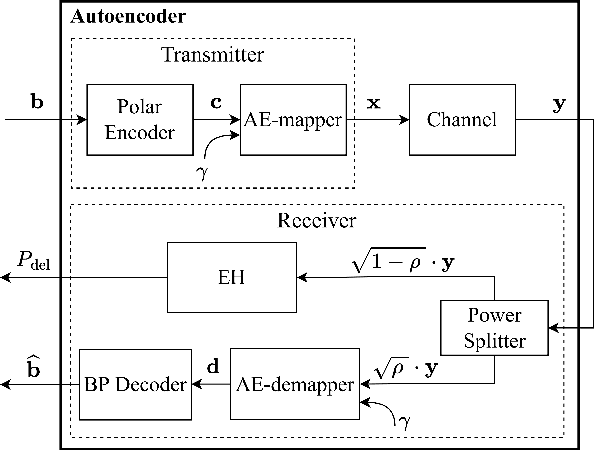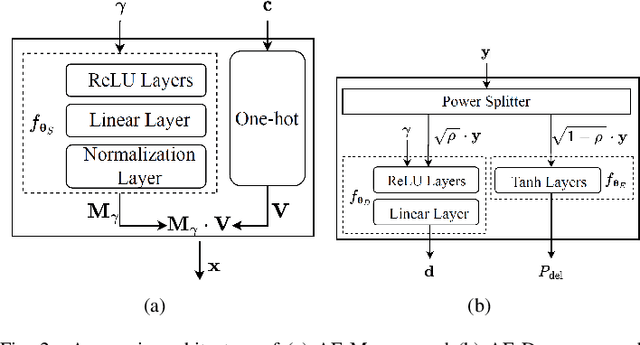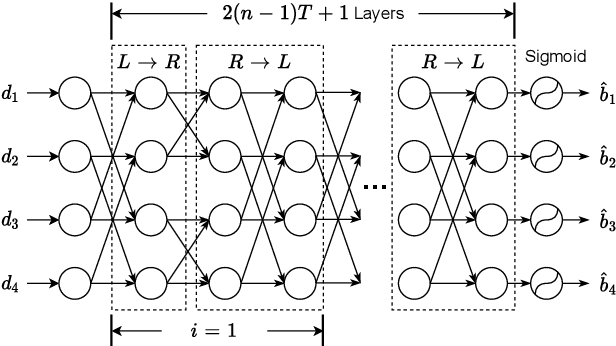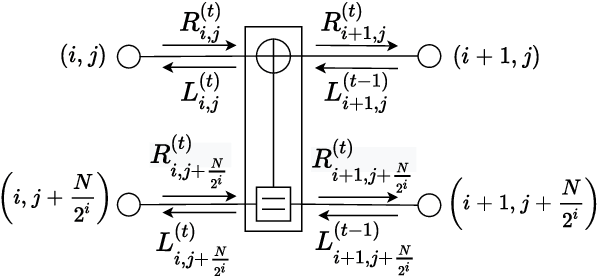Polar Coded Integrated Data and Energy Networking: A Deep Neural Network Assisted End-to-End Design
Paper and Code
Mar 28, 2023



Wireless sensors are everywhere. To address their energy supply, we proposed an end-to-end design for polar-coded integrated data and energy networking (IDEN), where the conventional signal processing modules, such as modulation/demodulation and channel decoding, are replaced by deep neural networks (DNNs). Moreover, the input-output relationship of an energy harvester (EH) is also modelled by a DNN. By jointly optimizing both the transmitter and the receiver as an autoencoder (AE), we minimize the bit-error-rate (BER) and maximize the harvested energy of the IDEN system, while satisfying the transmit power budget constraint determined by the normalization layer in the transmitter. Our simulation results demonstrate that the DNN aided end-to-end design conceived outperforms its conventional model-based counterpart both in terms of the harvested energy and the BER.
 Add to Chrome
Add to Chrome Add to Firefox
Add to Firefox Add to Edge
Add to Edge